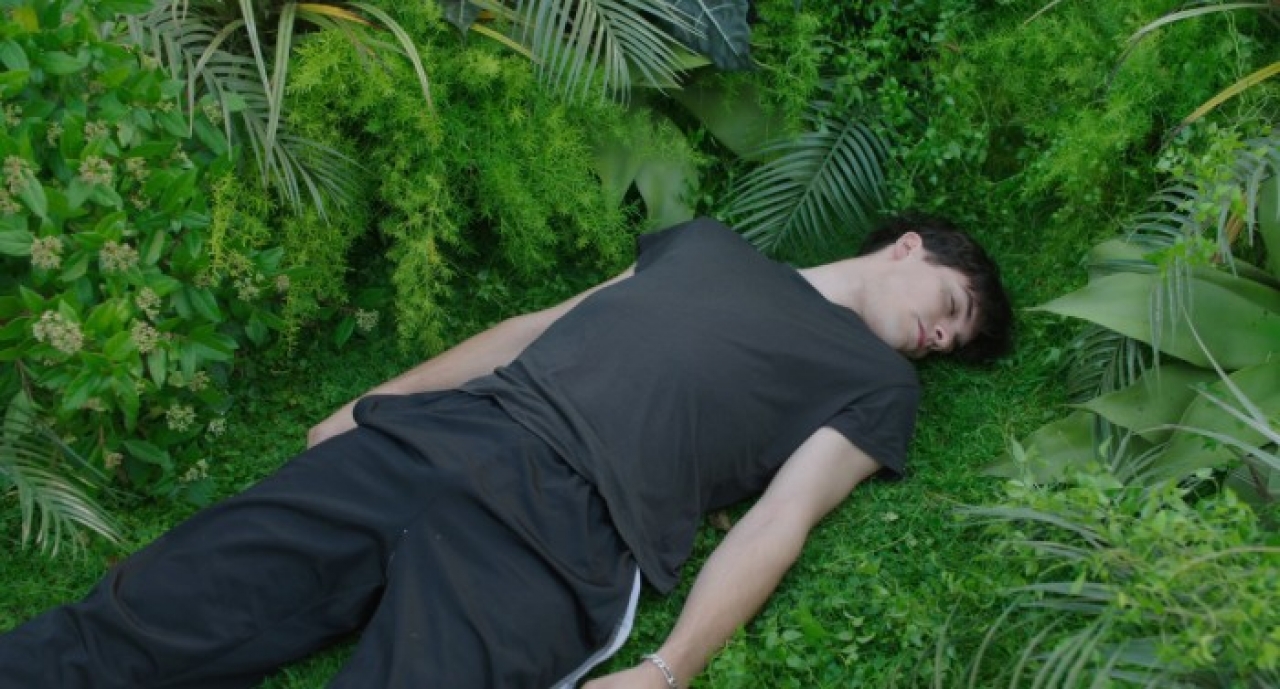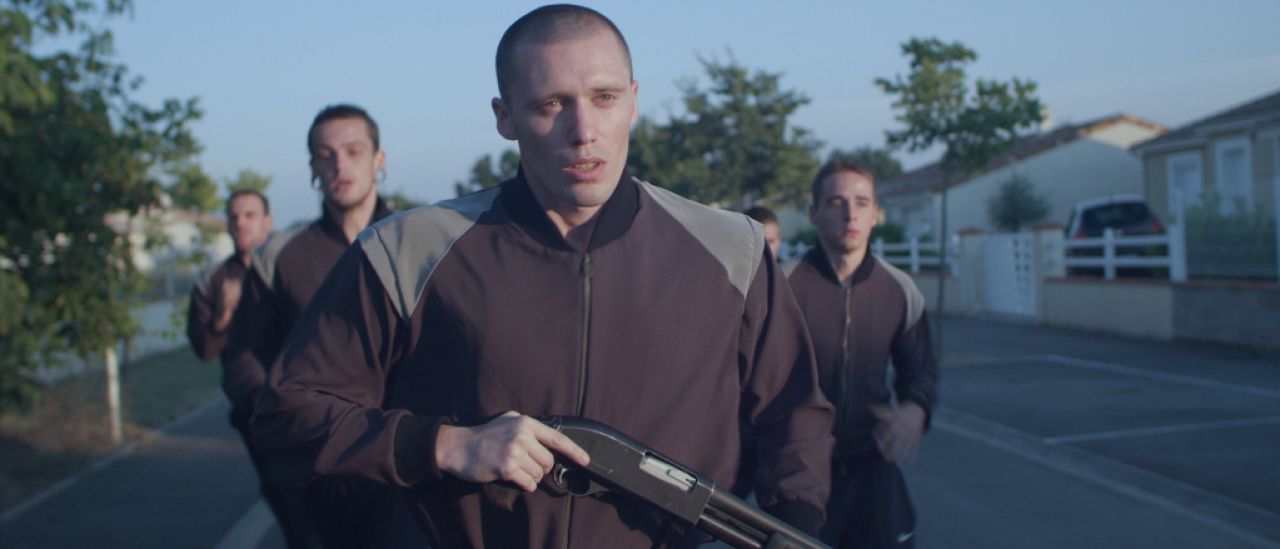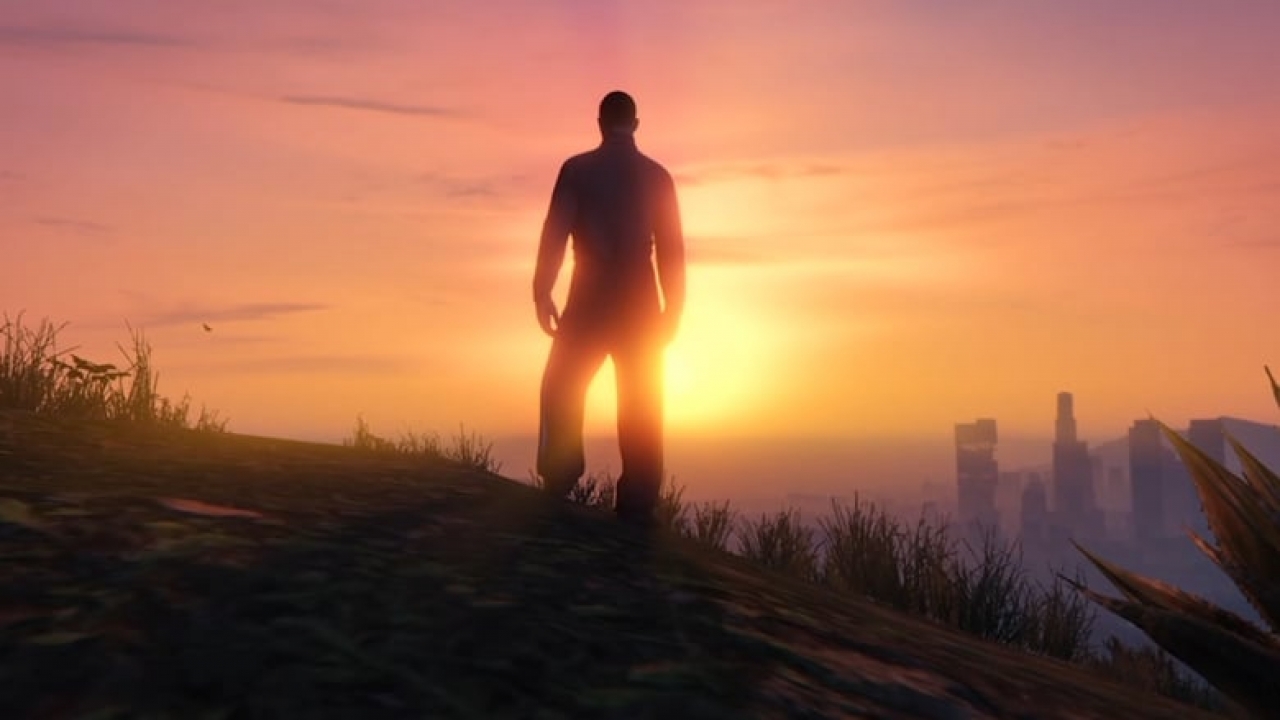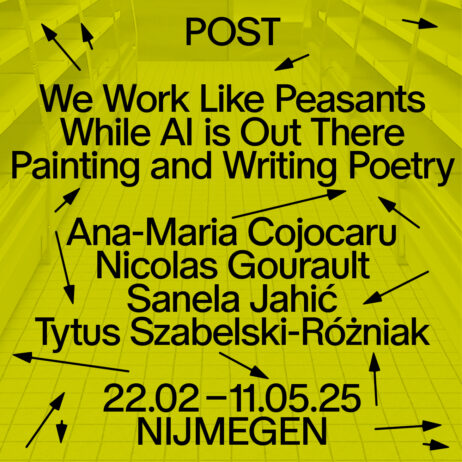Digital sunsets are always beautiful
Jonathan Vinel is a filmmaker that uses the language of a new generation. He grew up with many hours of playing video games, with an internet connection during puberty and with all the violent images that the internet presented to him; this made Vinel the person and director he is now. Mostly working together with his partner Caroline Poggi, he made short films that talk a new language, and that have a certain coolness – almost like music videos. His latest work together with Poggi, After School Knife Fight, recently premiered at the Cannes Film Festival. Mister Motley talks with Vinel about the influences of the digital era on his work.

Mathieu Janssen (MJ): ‘In your films we see quite some violence and sex – banal images that people nowadays are more and more confronted with in media like the internet, movies or in video game environments. You seem to depicture a world that is getting harder, while the people that live in this world will always stay humans with basic feelings like love or insecurity. Do you also think about the negative effects of these images? For example in your film Our Legacy we see very explicit porn, or in your latest film After School Knife Fight we look at Youtube videos of knife cuts – these images are very banal and lack subtlety. Maybe people become less capable of showing vulnerability in a world where the language of the media is so explicit and hard?’
Jonthan Vinel (JV): ‘My generation, that grew up in the nineties, has been educated by the internet. When we were 15 year old teenagers we had a lot of questions about sex, girls, drugs and ‘being a man’. Not our parents or school, but the internet was there to give us answers. You just have to type your question in the Google search bar and watch the results. All these results, and thus also the explicit porn and Youtube video’s, are part of us. I use these images in my films because I grew up with them. Our generation didn’t care about knowing if these images were good or bad for us; we avoided the issue of moral. The only thing that was important is how we could use them to grow up.’
MJ: ‘But now you’re grown up, and maybe you can reflect on the influence of the internet on our lives. For example, the way we communicate: digital communication might make it harder for us to really connect to others and express our deepest emotions.’
JV: ‘I’m not interested in the question if digital communication is worse or better for us. And I don’t know because I’m a product of this world and adopted its language and mode of expression. Computers make us learn the best and the worst things at the same time, and I like these contrasts. They allow you to watch the new world with new feelings, and see beauty in familiar places that we otherwise wouldn’t notice.
When it comes to expressing our emotions, I think people have always had the same questions and problems. The feelings of love, fear or loneliness are universal, and we will continue to look for ways to give these feelings placement with our new tools.’

MJ: ‘Using new tools to express emotion is also an interesting theme in your films. The most obvious example is your film Martin Cries, a film that is made within the world of Grand Theft Auto (GTA) 5. The main character seems to channel anger and frustration by kicking and trashing his room, driving very fast or shooting windmills with bazooka’s. Could you say he’s expressing his anger in a new language?’
JV: ‘What is so beautiful in video games is the simple fact that you can live a life that you can’t have in real life. It’s really pleasant and sad at the same time. You can be a hero, a gangster, a wizard or a muscular adventurer. You can be very powerful – something that is not possible for most people in real life. You have the power to kill many others and do all the horrors you have in your head, so yeah, it’s a way to express and channel anger and frustration.’
MJ: ‘The city in the game is a world on it’s own; a world where some people spend a lot of time in. A few years later the game is already old and out of fashion, and I imagine that this artificial environment evokes a weird sense of melancholy when going back to it. How’s that for you, did you play GTA a lot?’
JV: ‘I’ve played all the GTA’s since edition two that was released in 1999. I think it’s the game of my life. It’s an open world and it was the first game that I played where you have the impression to be free. That was a very important feeling for me; I could be a monster if I wanted. I could kill all the cops, fuck all the girls, drive all the cars and get all the tattoos. That was really cool, especially when you’re a nice kid in real life. When I grew up, I did other things in the game; I became more kind and less violent. I was riding in the mountains, looking for the sunsets, chilling in the forest.
Now when I’m playing GTA, I have memories of my past actions. I think of all the hours that I spent wandering in this big city. It indeed makes my melancholic – a big part of my memories are connected with these games.’

MJ: ‘I love the idea that you look for sunsets in the digital environment of this video game. In your films we also see a lot of digital beauty that mostly refers to nature. For example the sunsets in Martin Cries, the tiger in Our Legacy, or the iceberg logo in As Long As Shotguns Remain. Digital nature seems like a contrast though. Do you long for the real thing, for pure nature? Or is digital nature also real beauty to you?’
JV: ‘Everybody likes nature and in video games that’s not different. The only difference is that in video games the sunsets are always beautiful and in real life it’s more random.
I don’t think I’m fascinated by nature, but by things that represent something sacred. For me, sunsets, tigers, and icebergs are connected with the sacred. They’re not sacred because they are elements of nature, but they are sacred in my eyes because I think they are beautiful. I don’t want to prioritize the elements, or real life to digital images: sometimes a phone is as beautiful as a sunset.’
MJ: ‘You seem to really embrace the bigger role that digital environments are playing in our life. Is there no melancholy for, or longing back to a world where human interaction and nature were more present than nowadays?’
JV: ‘Not at all. I’m very curious where things will go and I hope it can help people to find a place where they can be happy.’ Video of MARTIN PLEURE // MARTIN CRIES (EXCERPT)

